The Earth Sciences major at WSU prepares you with broad knowledge, skills, and field experience in the interdisciplinary Earth Sciences, Geology, and the Geosciences.
This geological knowledge is urgently needed to address our most challenging global ecology problems, such as exploring the sustainable use of the Earth’s resources, understanding the complexities of global climate change, conserving and managing critical water and mineral resources, and reducing human suffering and property loss from natural hazards, such as earthquakes, flooding, landslides, and volcanoes.
The integrated science curriculum of WSU’s School of the Environment will allow you to explore and understand the complex dynamics of the Earth’s physical, environmental, and biogeochemical processes that have supported the evolution of life on Earth.
Along the way, you’ll have unforgettable opportunities to experience the latest in science and technology education while learning in outdoor settings through extensive fieldwork in the beautiful and dramatic landscapes of the Pacific Northwest.
With WSU professors as your mentors and guides, you may even conduct your own research or work alongside graduate students and faculty on field projects in Earth Science and Geology.
Your Experience in Earth Science
Be inspired to make a difference in the real world by joining a leading academic and research program in Earth Science that prepares students to meet the growing demands on the Earth’s resources by better understanding global ecology and all the interactions of the biophysical systems operating on Earth.
- Get hands-on experience in science labs and teaching programs like the Radiogenic Isotope & GeoChronology Laboratory and the Peter Hooper GeoAnalytical Laboratory.
- Work closely with professors who are nationally-recognized experts in topics such as:
- Geochemistry of large volcanic eruptions
- Ground and surface-water geohydrology
- Hydrothermal systems
- Chemical and physical evolution of the Earth
- Study at nearby field sites like the Columbia River Basalt Plateau, Idaho and Wallowa batholiths, Cascade volcanos, and local groundwater sources.
- Expand your experience beyond the School of the Environment through our close ties to the Department of Geology at nearby University of Idaho.


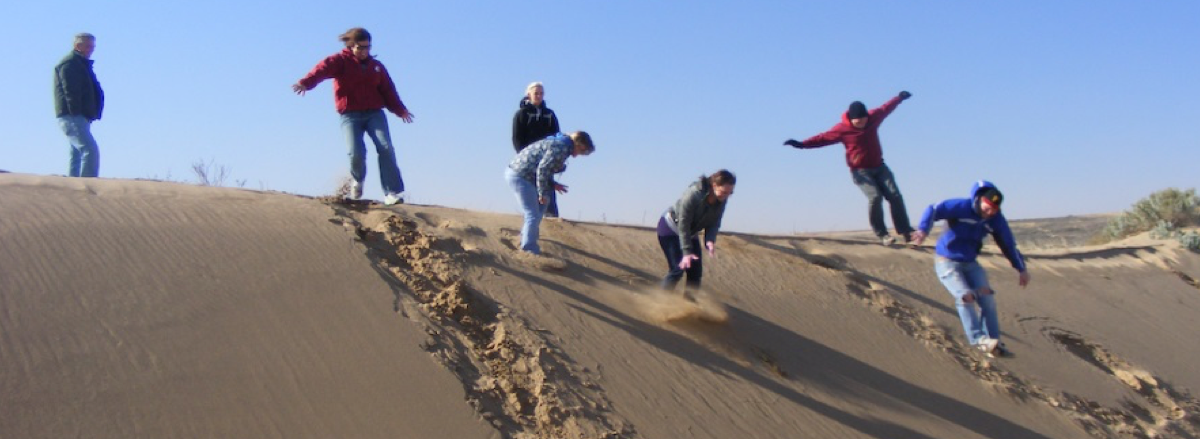
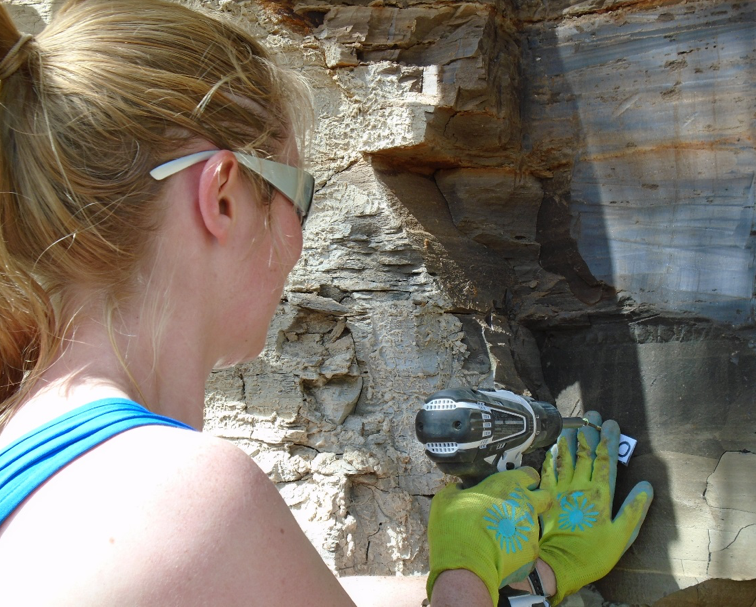
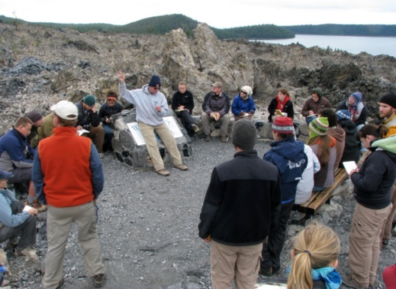
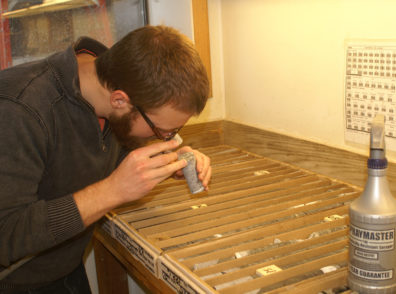
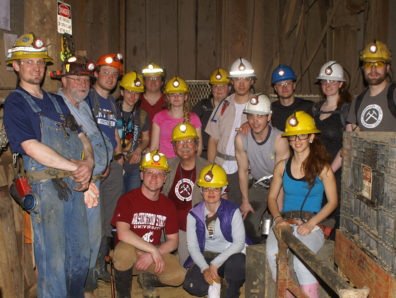
Your Course of Study
- University general education requirements (UCORE)
- Basic biology, chemistry, physics, math & statistics classes
- Earth and Environmental Science integrated common core classes
- SOE 300 Natural Resources Ecology OR BIOL 372 General Ecology
- Introduction to GIS (SOILS 368)
- SOE 210 Earth History & Evolution OR SOE 250 Intro to Earth System Science
- SOE 312 Nat Res & Society OR POL_S 430 The Politics of Natural Resource & Environmental Policy
- SOE 315 Water & Earth OR NATRS 460 Watershed Management
- Earth Science core classes
- Physical Geology (SOE 102)
- Minerology & Crystallography (SOE 350)
- Intro Stats for Engineers STATS 370 or Statistical Methods in Research STATS 412
- Experiential summer field camps
- Geology Field Camp (SOE 207)
- Field Geology (SOE 408)
- Earth Science Areas of Emphasis (see advising sheet below for courses)
- Solid Earth
- Earth Surface Processes, Soils, and Geography
- Water and Climate
- Professional electives, minor or internships that match your interests and enhance your career goals.
When you have completed your Earth Science major you will be able to:
- Describe the fundamental concepts of geology, including the origin, composition, structure, and evolution of the Earth, and how the Earth system responds to internal and external forces.
- Identify and describe rocks, minerals, and fossils in the field, in hand samples, and under the microscope.
- Describe and discuss geologic time, including the principles and methods of absolute and relative dating.
- Be capable of applying field observations to the construction of geologic maps and cross sections.
Your Hands-on Experiences
Your education in Earth Science and Geology in the School of the Environment will include many hands-on experiences including field trips, field camps, and internships.
Upon graduation you will be prepared to begin work as an effective geologist, geochemist, exploration scientist (for petroleum, natural gas, and mineral deposits), geophysicist, paleontologist, climatologist, hydrologist, mineralogist, oceanographer or related career path.
Meet Faculty in the Geosciences
Get hands on experience while learning in geology labs and working with leading researchers and educators in geology such as:
- GeoAnalytical Laboratory
- Computational Geodynamic Laboratory (Katie Cooper)
- Micro- and macro-scale geological processes; crustal evolution (Johannes Haemmerli)
- Biogeochemical interactions of climate, the biosphere, and the pedosphere (Marc Kramer)
- Chemical Weathering on Ecology, Hydrology, Geochemistry, and Microbiology (Kent Keller)
- Yellowstone hot springs, hydrothermal systems, stable isotope geochemistry (Peter Larson)
- Structural geology, sedimentation, tectonics (Sean Long)
- Planetary science and Geoscience education (Julie Menard)
- Radiogenic Isotope Laboratory (Jeff Vervoort)
- Volcanoes, super-eruptions, composition of volcanic rocks (John Wolff)
Your Career Options in Earth Sciences
- Exploration geoscientist
- Petroleum or mining geologist
- Geochemist
- Geophysicist
- Paleontologist
- Oceanographer
- Climatologist
- Hydrologist
- Mineralogist
- Planetary geologist
- Volcanologist
Geology Club
The Geology Club provides the opportunity for students who are interested in geological sciences to learn local & regional geology, to interact among students, faculty, and industry leaders, and to involve relationship development among students, faculty and members of the community.
Activities include field trips, attending lectures/seminars of interest, scientific demonstrations and Rock & Mineral Sale during the Dad’s and Mom’s Weekends, and monthly club meeting.
If you are interested in joining the Geology Club, please e-mail geologyclub@mail.wsu.edu.
[Photo credits: Top banner photo (Horsethief Butte, Washington State) by Amateria1121. Source: Wikipedia. License: CC BY-SA 3.0]